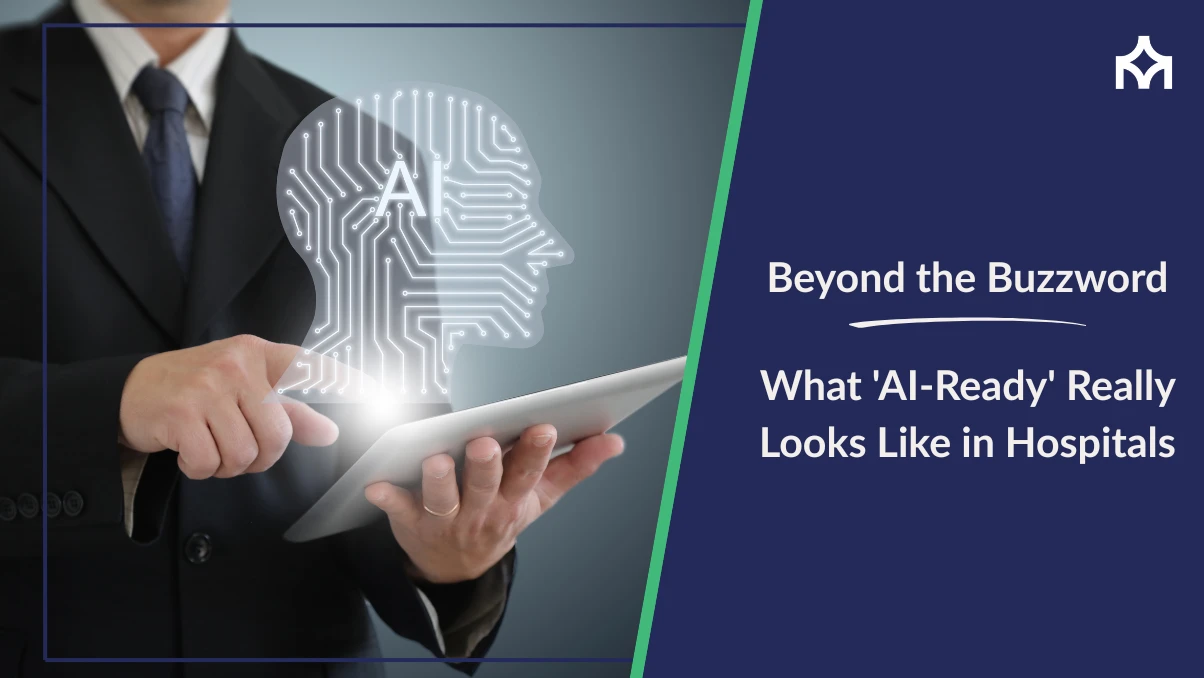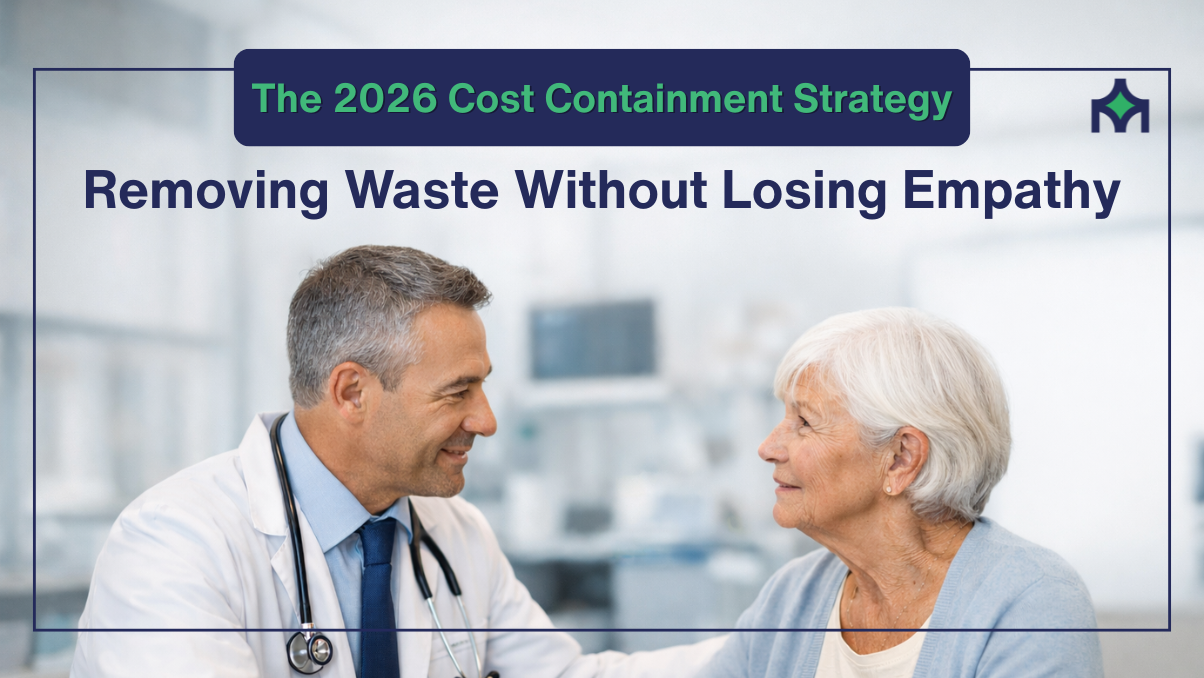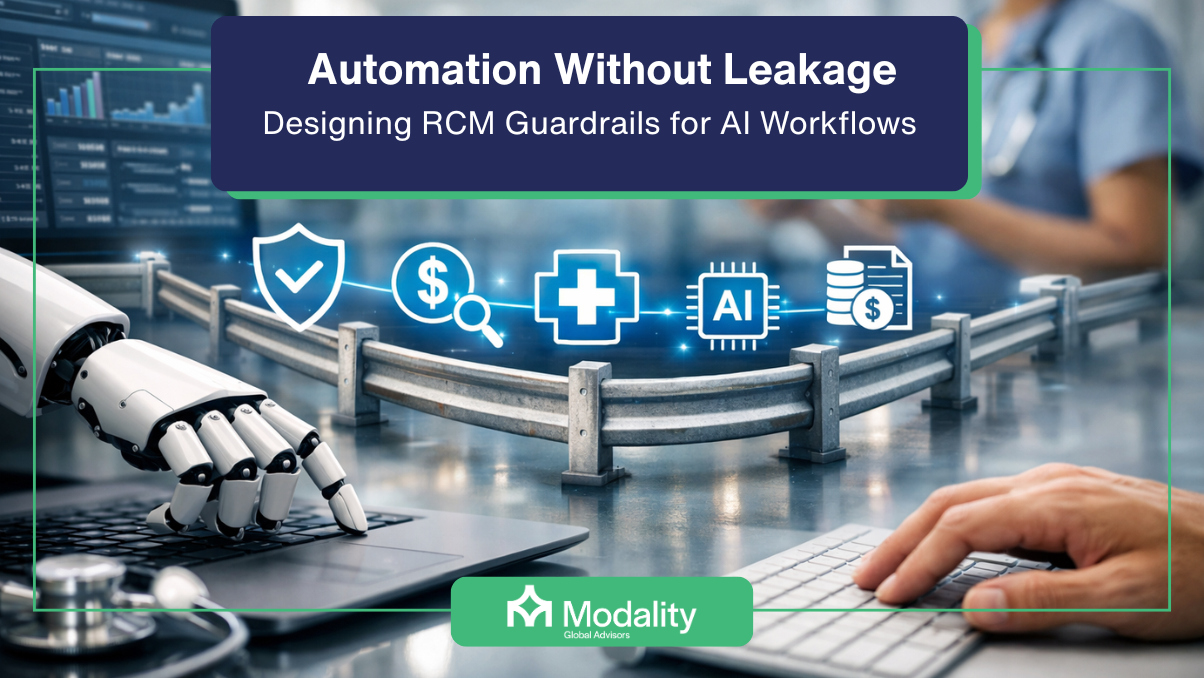Beyond the Buzzword: What 'AI-Ready' Really Looks Like in Hospitals
AI-Ready Hospitals in 2025: From Buzzword to Bedside Impact
Artificial Intelligence (AI) is everywhere—product launches, conference keynotes, strategy decks. But being “AI-ready” is far more than piloting a chatbot or testing an imaging model. For health systems facing tight budgets, rising expectations, and complex regulations, AI-readiness means aligning data, teams, workflows, and infrastructure to capture real value.
1) Clean, Secure, Unified Data
AI needs high-quality, well-governed data. AI-ready hospitals integrate clinical, financial, and operational datasets using HL7, FHIR, and SNOMED; enable real-time access via APIs; and apply zero-trust security to protect PHI.
2) Interoperability & a Single Source of Truth
AI fails on stale or conflicting inputs. Leaders stand up centralized data hubs so radiology, pharmacy, admissions, and admin share and consume synchronized, real-time information—improving decision support and enabling scale.
3) Workforce Empowerment, Not Replacement
Adoption rises when people are prepared. Upskill clinicians, case managers, and executives in clinical applications, data interpretation, bias awareness, and ethical AI. Hospitals with formal AI education programs see higher usage and satisfaction.
4) Embedded AI with Measurable ROI
Move beyond pilots. Integrate AI into core workflows—predictive bed planning, sepsis alerts, image triage, claims automation—and track results (turnaround times, readmissions, manual workload). Without metrics, AI remains a marketing line.
5) Resilient, Compliant Infrastructure
Bake privacy and security into every layer: role-based access, MFA, encryption, audits, and alignment to HIPAA, GDPR, and local laws (e.g., GCC). MGA’s advisory framework maps controls to regulatory best practices while enabling innovation.
What AI-Ready Looks Like in Practice
- Reduce diagnostic errors by up to 30% with NLP-supported documentation and radiology triage.
- Forecast surgical case volumes with >85% accuracy using predictive analytics.
- Lower administrative workload 20–30% via intelligent scheduling and automated claims.
- Cut avoidable readmissions 12–15% using real-time risk alerts and proactive interventions.
MGA’s Perspective: People • Process • Platform
- People: AI-literate teams across clinical and operational roles.
- Process: Digitized, interoperable workflows with AI embedded where work happens.
- Platform: A robust, secure stack for real-time analytics, automation, and continuous improvement.
Standardize data, support multidisciplinary adoption, and set clear KPIs—so AI-readiness becomes a durable competitive advantage.
The future won’t favor the fastest adopters—it will reward the smartest implementers. AI-readiness isn’t optional; it’s how hospitals survive, compete, and lead.
Ready to assess AI-readiness? Let MGA guide you from insight to execution. Contact hello@modalityglobal.com.






